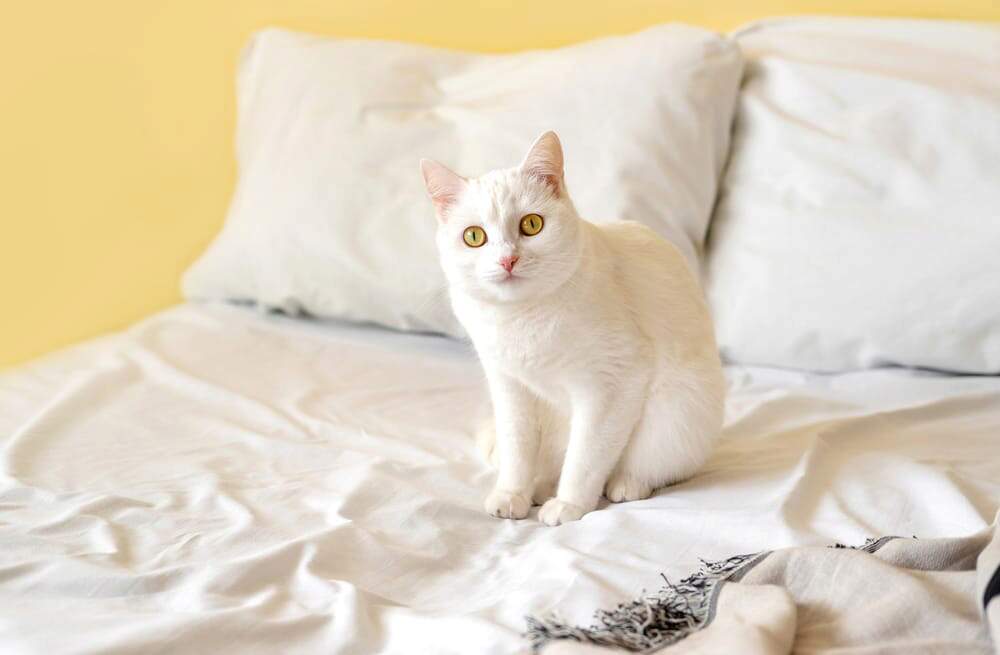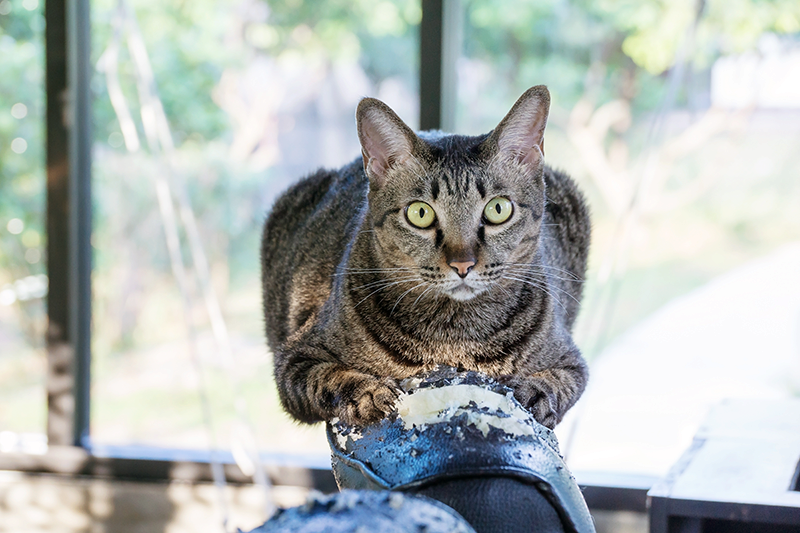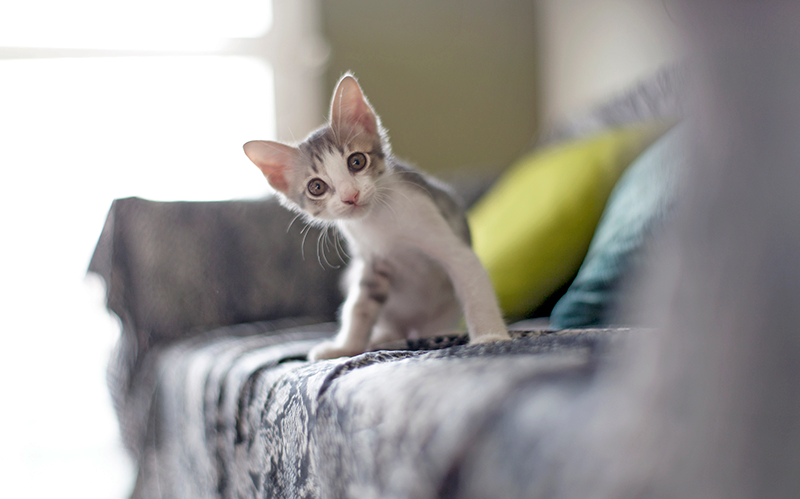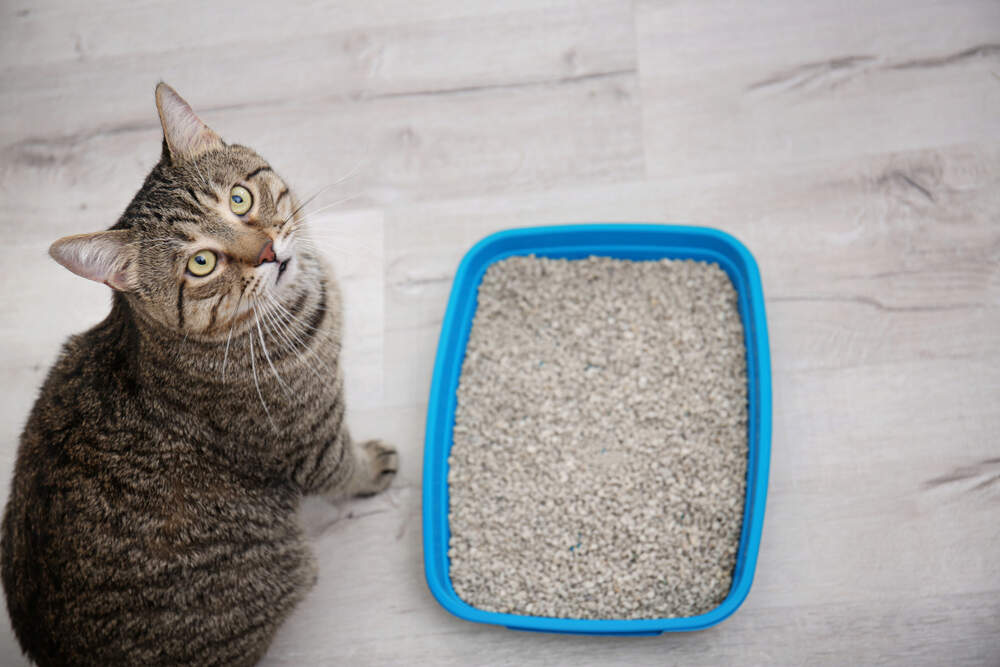Why Is My Cat Peeing on My Bed?
One of the most annoying moments a cat owner might face is waking up to the smell of pee and realizing your cat peed on your bed while you were asleep. In some cases, your cat might even pee on the bed right in front of you! Of course, you immediately wonder why your cat is doing this. Don't worry; your cat isn't urinating on your bed because he's mad at you. Your cat might pee on your bed for a variety of reasons, and you're not powerless to stop this frustrating problem.
Look for a Medical Reason First
The very first thing you should do if your cat has suddenly changed his litter habits is to schedule an appointment with your veterinarian. Sometimes the issue can be as simple as an undiagnosed health concern leading your cat to pee in inappropriate areas. Other health issues could also contribute, so get your cat checked out.
Sometimes Stress is the Culprit
Sometimes your cat's e-meow-tional health is the reason why she pees on the bed. Stress or nervousness can lead to the annoying habit because she doesn't feel secure, and the stress can be caused by a variety of reasons. Maybe you recently had a change in your home, like rearranging furniture, bringing home a baby, moving, or changing your work schedule. Maybe she's stressed by your other pets or even other cats wandering around your yard at night.
Increasing her confidence can help decrease her stress and, hopefully, her spraying incidents. Start by giving her more "high places" to claim as her own, like cat trees and cat condos. Cats build confidence when they have a taller perspective on their world.
Play with her more so you can build your bond and expend some of her energy. Maybe start taking her outdoors once a day on a cat harness, so she has a new adventure that stimulates her mind. Try clicker training, or get out a feather wand and play every day. Keep this bonding time consistent, so she looks forward to it.
Finally, use Comfort Zone products to help reduce stress. The Comfort Zone team is dedicated to helping cats feel safe, happy, and calm using signals cats understand. Try the Comfort Zone Calming Diffuser or the Comfort Zone Multi-Cat Diffuser if you have more than one cat. Plug them into the rooms where your cat spends the most time. If your cat is on-the-go, snap a Comfort Zone Calming Collar on her so she'll take those calm feelings wherever she roams.
You might also want to use the Comfort Zone Spray & Scratch Control Spray around your bed to discourage her from spraying there again. Spray it once a day; the effects of the spray last for hours.
Look for Issues with the Litter
Your cat might pee on your bed because he's really uncomfortable with his litter box. You need at least one litter box per household cat, plus one additional box.1 Put them in different locations throughout the house, including at least one spot in a private area away from noise and traffic.
Now is the time to experiment with all different types of boxes. Try covered and uncovered, as well as large and small boxes. You also want to try boxes with an open side that doesn't require stepping over to get into.
Test different kinds of litter to discover if your cat has a preference. Cats that were once outdoors a lot might prefer a box with outdoor soil mixed with litter. Some cats with long fur might not like clay litter because it sticks to their fur, but they'll love crystal litter. Other cats may prefer pine, while some need litter that doesn't have a fragrance. Some cats like clumping litter and others won't touch it. Other cats may not use a box if it has a liner. You also want to experiment with the litter's depth, and remember to clean it frequently.
Your Cat May Feel a Need to Mix His Scent with Yours
Sometimes peeing on the bed has something to do with your cat wanting to mix his scent with yours (or with someone who shares your bed).If this is the case, it isn't out of anger or spite. Instead, it's about marking you all as part of the same community. If you've been gone a lot, your cat might feel the need for extra bonding. If a new person is sleeping in your bed, your cat might feel a little insecure and want to show he's still part of the same community. Bonding with your kitty through extra playtime can help ease that insecurity.
Consider Removing the Triggers
Sometimes you need to remove the triggers that lead to the peeing. If she pees on a specific blanket on your bed, removing the blanket might be all it takes to solve the issue. Putting a litter box near the bedroom can also help. Sometimes cat owners choose to stop allowing the cat to sleep in the bedroom. But this might cause extra distress if your cat already feels insecure. Try bonding more, playing more, and providing new litter box options first. Sometimes giving treats on the bed can also help since cats tend not to urinate where they've eaten.
How to Get Cat Pee out of Bedding
To help stop your cat from peeing on your bed, thoroughly clean any bedding that he pees on. If your cat can smell his old pee, he'll be tempted to spray there again. So how do you get cat pee out of bedding?
First, clean the pee as quickly as possible. Look for products specifically geared toward cleaning cat pee. Look for enzyme-based cleaners as they break down the acid in your cat's urine. Avoid anything with ammonia because it kind of smells like cat pee and might actually attract your cat back to that spot.
Rinse the spot on the bedding where your cat peed with cool water and blot it, don't scrub. Then wash the bedding in a washing machine with a mix of detergent and baking soda or cider vinegar. Add the enzyme cleaner to a second round if the laundry still smells after the first wash. Then air dry the bedding. Don't use the dryer, just in case the scent isn't entirely gone. Heat can lock in the scent. You might need to wash the bedding several times before the smell is completely gone.
You also want to make sure the surrounding bed frame and floor didn't get peed on too. Clean them with your cat urine cleaner. You might even need to clean the mattress depending on how much your cat peed. First, soak the spot with water and blot, then soak with your enzyme cleaner and blot after about 15 minutes. Then let it air dry.
Remember, your cat isn't acting mean or spiteful when he pees on your bed. Something's wrong, and this is his only way to let you know. Try not to yell at your kitty or make him feel even more insecure. Instead, talk to your veterinarian and follow the tips in this guide. With time, patience, and a lot of love, you'll find the solution together and return your cat to a calm state of mind.
1. The Humane Society of the United States. "Preventing Litter Box Problems." HumaneSociety.org, https://www.humanesociety.org/resources/preventing-litter-box-problems.




